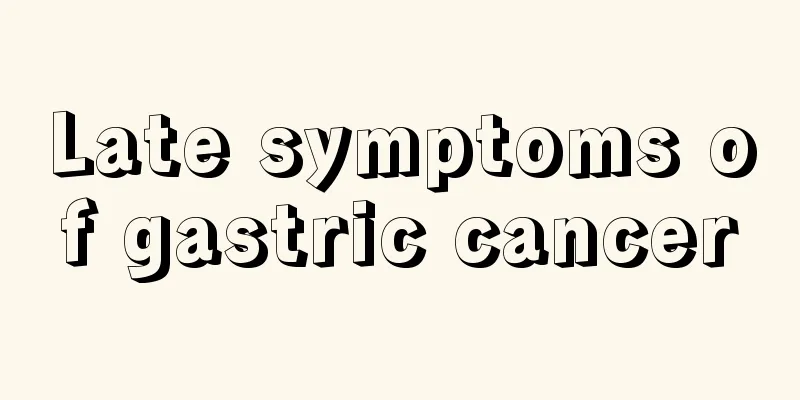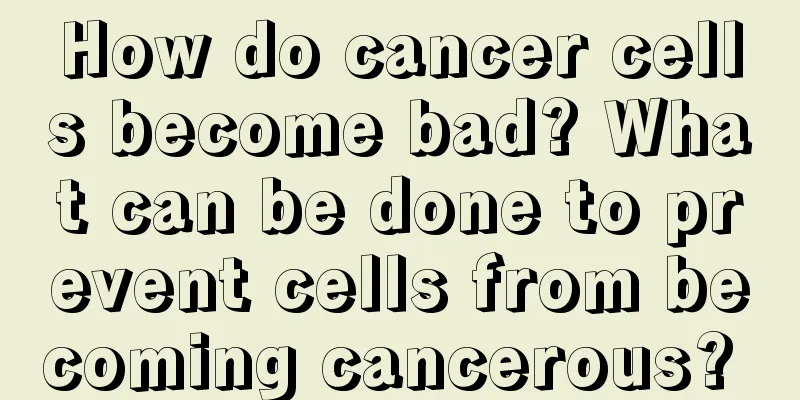Late symptoms of gastric cancer

|
Gastric cancer is a very painful disease, because after getting gastric cancer, the patient cannot eat casually. Even at normal times, the cancer may spread to the liver, lung function, brain and bones, which has a great impact on our body. Therefore, this situation often occurs in the late stage of gastric cancer. Late-stage gastric cancer The late-stage symptoms of gastric cancer often bring great pain to patients, seriously affecting their lives and psychology. In patients with advanced gastric cancer, metastatic lesions can spread directly to the adjacent pancreas, liver, and transverse colon; they can also metastasize to the lymph nodes around the stomach and distant lymph nodes through the lymph nodes; they can also metastasize to the liver, lungs, brain, bones, skin, ovaries, etc. through the blood circulation. At this time, fixed masses can be palpated in the abdomen; enlarged lymph nodes can be palpated in the left supraclavicular fossa and axilla; or ascites, jaundice, hepatomegaly, and tumors in the rectal pouch may occur. Nausea and vomiting Since most gastric cancers are located in the pyloric antrum, symptoms of pyloric obstruction are quite common. Atypical early obstruction can cause a feeling of bloating after eating, mild nausea, and regurgitation, while typical mechanical pyloric obstruction causes gastric expansion and vomiting. Vomitus is mostly leftover food that has stayed in the stomach for too long, so it has a rotten and sour smell. Diffuse gastric cancer often does not have symptoms of obstruction and vomiting. Mid- to late-stage gastric cancer can cause ascites due to peritoneal and liver metastasis or portal vein obstruction. If gastric cancer cells are implanted and metastasized in the chest cavity, pleural effusion can occur. Ascites and pleural effusion are often bloody, and cancer cells can sometimes be found in them. Early-stage gastric cancer may cause bleeding, often manifested as tarry stools. Late-stage gastric cancer causes heavy bleeding, and if there is pyloric obstruction, coffee-colored or dark red blood is often mixed in the vomitus. The stool occult blood test is positive. |
<<: Obstructive pneumonia and lung cancer
>>: Causes of death from glioma
Recommend
What are the causes of onychomycosis?
Onychomycosis is a common disease caused by funga...
How to wake up early without feeling sleepy
Many people don’t actually have enough energy whe...
Brief analysis of common mid-term symptoms of ovarian cancer
Ovarian cancer is a serious oncological disease t...
Low platelets and high urine protein, what's going on
Nowadays, many people have low platelets and high...
What are the types of rhinoplasty?
Before choosing rhinoplasty surgery, you must con...
What should be paid attention to after thyroid surgery? How to take care of yourself after thyroid surgery
Sometimes, if there are some lesions in the thyro...
What kind of bath can help lose weight?
Obesity is a big problem that troubles many peopl...
What are the early symptoms of lung cancer patients? Lung cancer patients have 4 early symptoms
The occurrence of lung cancer seriously endangers...
7 small recipes for moistening the lungs and quitting smoking to prevent lung cancer
Smoking is harmful to human health and is also an...
What are the nursing care for kidney cancer patients
After kidney cancer occurs, you will suffer a lot...
What is the survival rate of advanced colorectal cancer
The occurrence of colorectal cancer is caused by ...
What is the reason for a pimple under the eyebrow
With the fast pace of life in real society, pimpl...
The process of death of patients with cerebral hemorrhage
Cerebral hemorrhage is a relatively complicated d...
What is the gold standard for diagnosing thyroid cancer?
Pathological diagnosis is the gold standard for d...
Can I eat peaches if I have brain cancer?
Can patients with brain cancer eat peaches? Patie...









